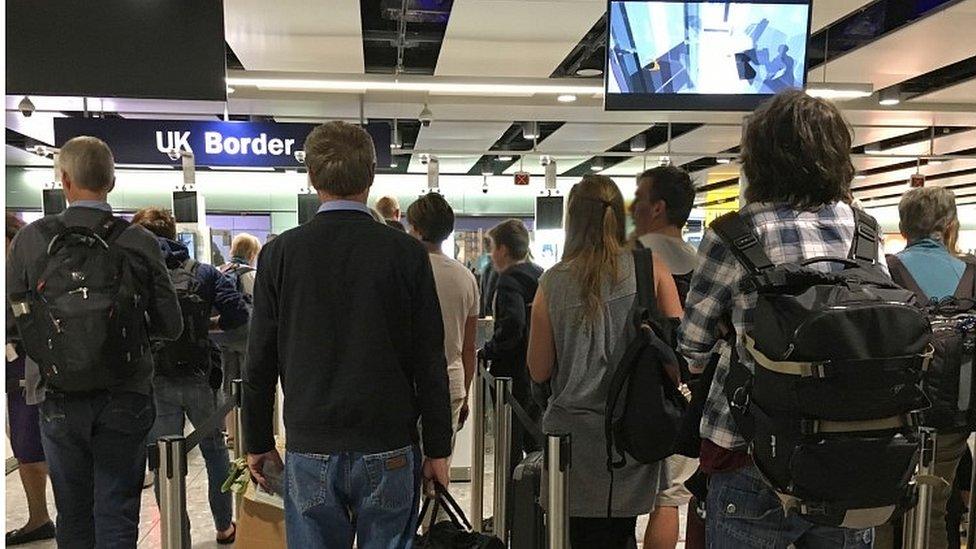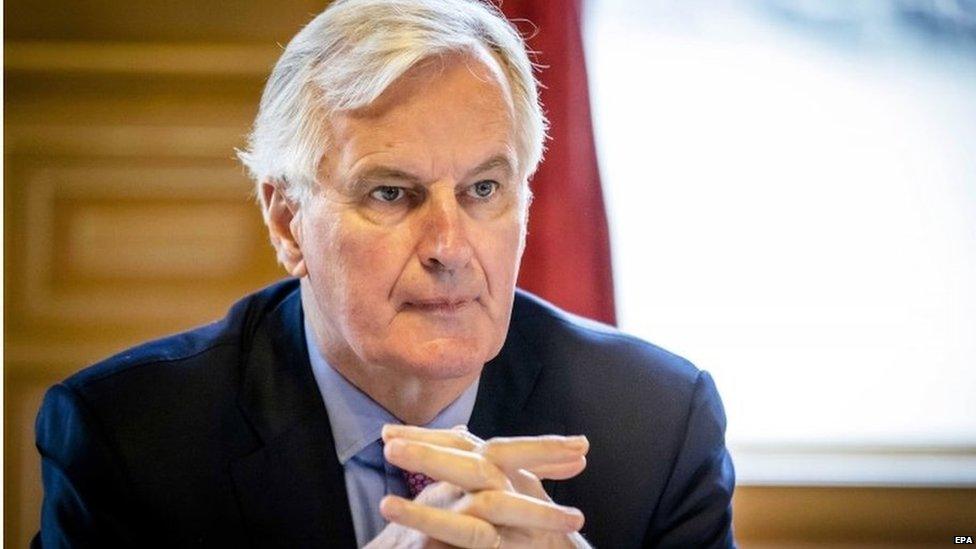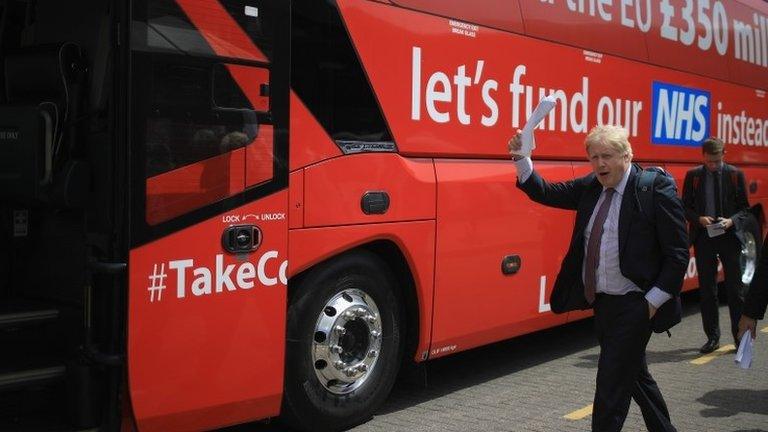Brexit: EU 'tightens transition guidelines' on immigration, trade and fishing
- Published

EU politicians want freedom of movement rules to continue until the start of 2021
The UK's freedom to determine its own rules on immigration, trade and fishing in a transition period after Brexit may be further restricted, according to revised EU guidelines on a transition.
Draft EU documents would see full freedom of movement extended until the start of 2021.
The UK would also need "authorisation" to stick with existing EU trade deals.
The BBC's Adam Fleming said the guidelines appeared to be aiming for a "business as usual" transition period".
The UK is scheduled to leave the EU on 29 March 2019 but to minimise the disruption to people and businesses the idea is to smooth the way to post-Brexit relations over 18 months to two years - which is referred to as a transitional or implementation period.
But many Conservative MPs, and some ministers, are concerned about the effects that an effective "stand-still agreement" for about two years would have in terms of entrenching the role of the European Court of Justice and curbing the UK's room for manoeuvre in negotiating trade deals.
The other 27 EU countries will meet later this month to finalise their guidelines for Michel Barnier, the EU's Brexit negotiator, ahead of the start of formal talks.
According to a draft copy of the guidelines, reported by the FT, external and the Guardian, external, the EU is seeking to tighten the conditions which will apply to the UK during the transitional period which the EU proposes will last up to 31 December 2020.
Among areas where the language has been toughened, the text stipulates that provisions on citizens' rights, agreed as part of a first-stage deal in December, will not kick in until the end of the transition period.
The FT said this meant the UK would not be able to deny work permits to any aspiring EU migrants pending the introduction of new immigration rules.
It also states that the UK will need the EU's permission to roll over international trade agreements with non-EU countries that the UK currently benefits from as an EU member.
On fishing, it proposes that existing quota rules will remain the same during the transition phase, and that any changes arising from "specific consultations" must be in "full respect" of EU law.
Businesses based in, and trading with, the UK want details of a transition agreement to be agreed as soon as possible so they can plan for the future and avoid having to deal with two sets of regulatory changes, a position backed by the Treasury.
But British ministers have also insisted that free movement will end when the UK leaves and that European workers coming to the UK after 29 March 2019 will have to register.

The EU will agree Michel Barnier's negotiating mandate later this month
The FT said some UK diplomats believed the revisions were potentially beneficial as, on trade, they referred to the UK striking its own deals while remaining "bound by the obligations" stemming from existing agreements.
Speaking in a debate in the European Parliament, leading MEP Guy Verhofstadt said the rights of EU and British citizens - including on free movement - should continue to apply until the transition period ends.
"It is very important that in these negotiating directives... the new system for EU citizens living in Britain is only coming into place after the transition," he said.
There should be, he argued, "no question" of trying to "make it difficult for EU citizens to obtain their permit to reside in Britain".
Meanwhile, the president of the European Council Donald Tusk urged "more clarity" from the UK about what kind of relationship it wanted with the EU.
"The hardest work is still ahead of us and time is limited," he said, adding that Brexit would happen "unless there is a change of heart amongst our British friends".
British ministers have hit out at the "relative silence" from the EU about its own aspirations for a post-Brexit relationship while there are also concerns that the EU's decision to publish guidance to its agencies about what to do in the result of no Brexit deal being reached risks discriminating against British firms.
- Published16 January 2018
